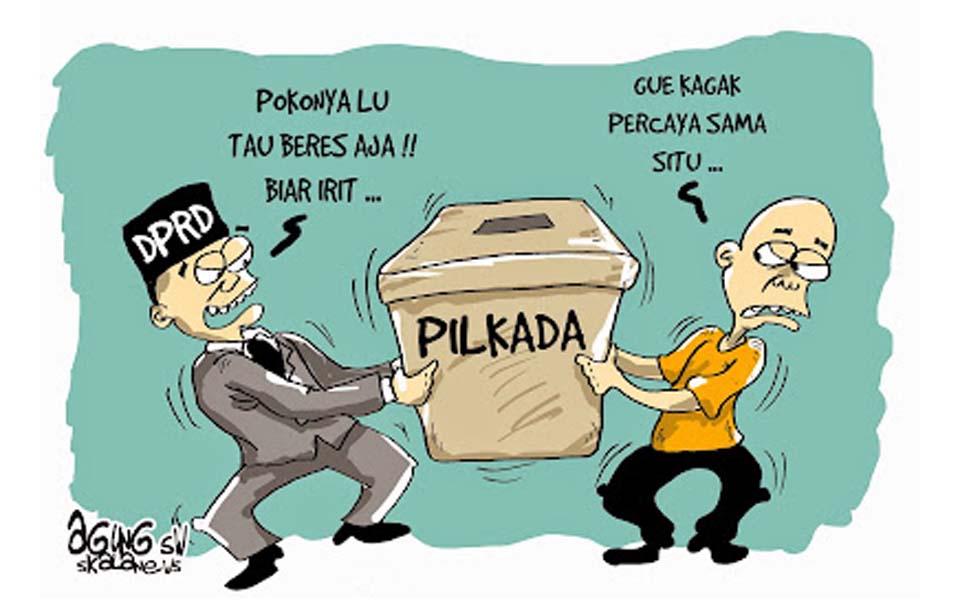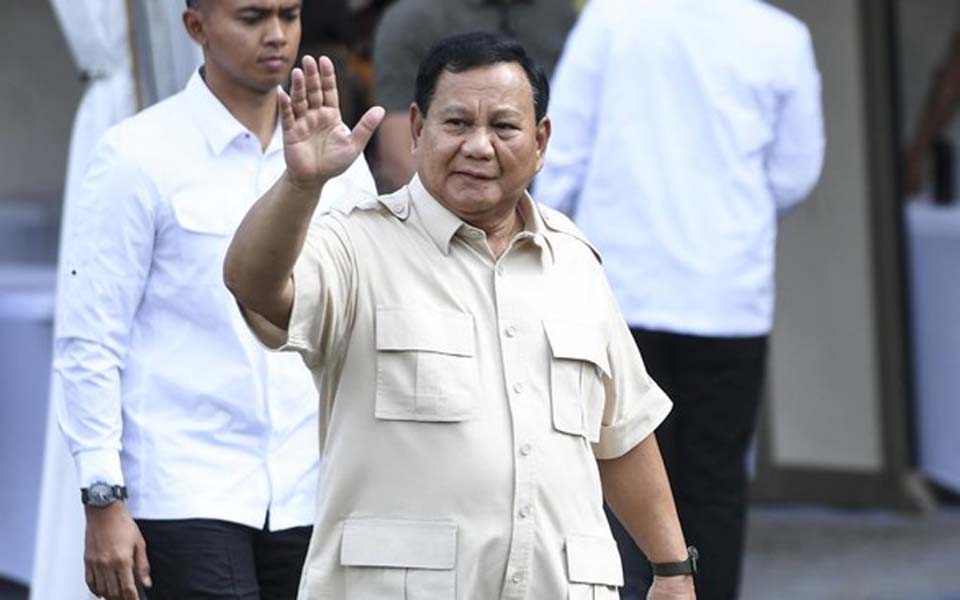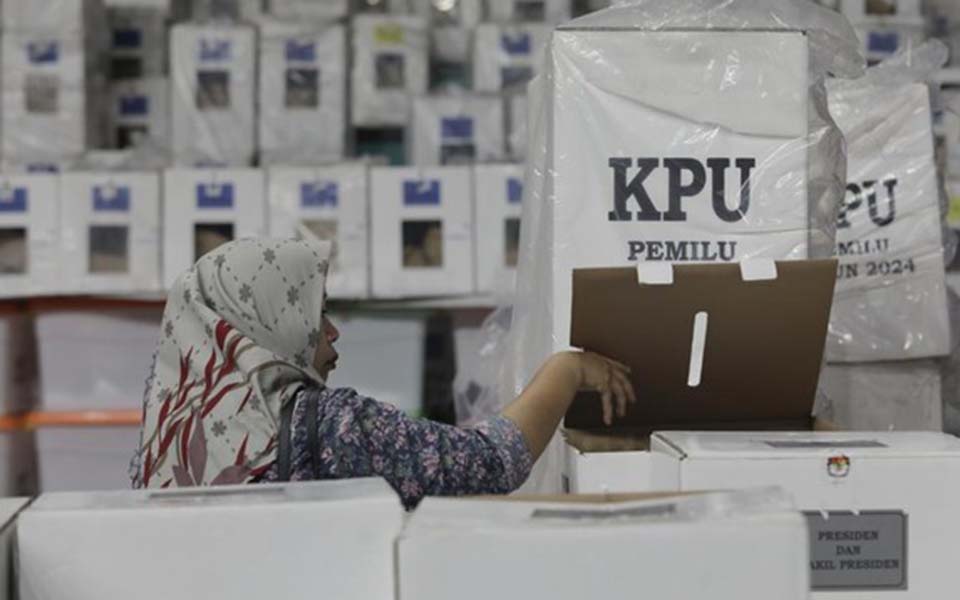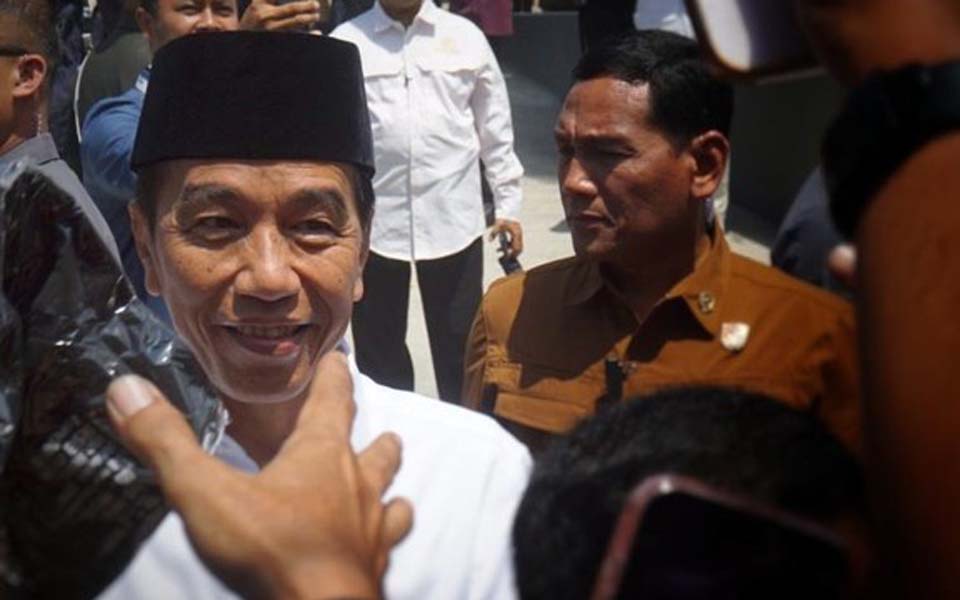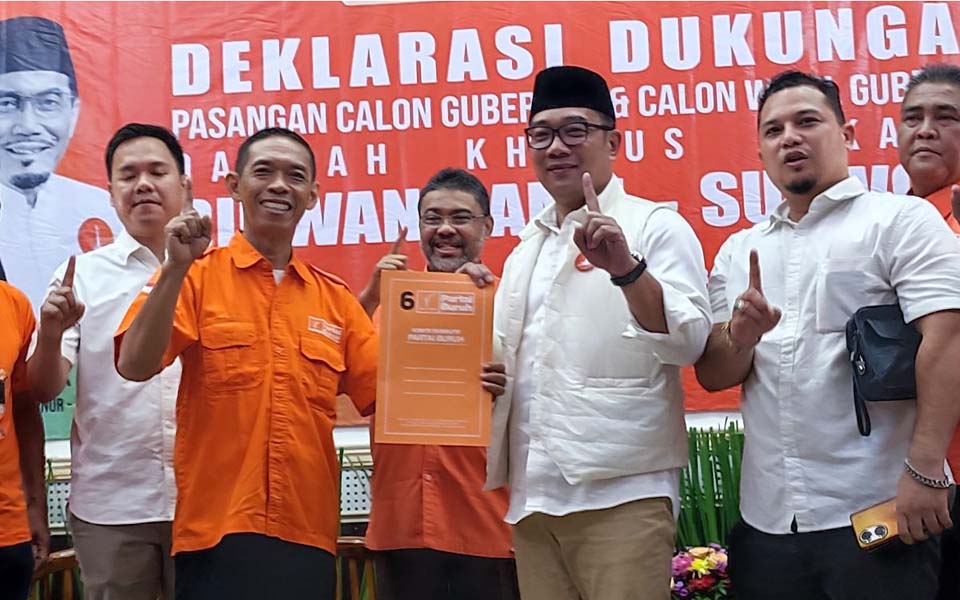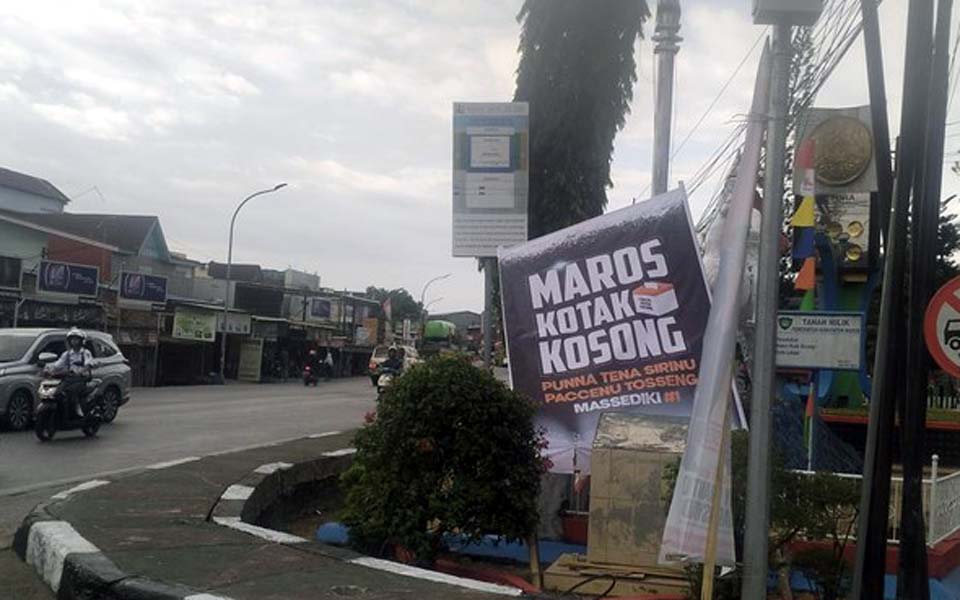Ramdhan Muhaimin, Jakarta – The popularity of President Susilo Bambang Yudhoyono and Vice President Jusuf Kalla (SBY-JK) has declined sharply over the last three years with the public’s level of dissatisfaction with their performance dropping below the psychological barrier of 50 percent. Sixty-five percent of voters have no preference for any of the seven largest political parties.
This was the result of two surveys conducted by the Indonesian Survey Institute (LSI) conducted between 17-24 March across 33 provinces comprising a total of 1,238 and 211,238 respondents respectively with a 3 percent margin of error. The results were announced by LSI Director Syaiful Mujani at a press conference at the Sari Pan Pacific Hotel in Jakarta on Monday March 27.
The surveys found that only 49.7 percent of respondents said they were satisfied with Yudhoyono’s performance, a big decline in comparison with an 80 percent level of satisfaction when he first took office. “This is the lowest figure of dissatisfaction since SBY became president”, said Mujani. Kalla’s level of popularity meanwhile had dropped from 77 percent to 46.9 percent.
Mujadi said that the sharp decline in the public’s satisfaction is closely linked with the public perception of the economy with as many as 54 percent of respondents feeling that the economy is worse that it was last year, 23 percent saying it had improved, 21 percent feeling that it is the same and 3 percent saying they didn’t know.
The LSI survey used a multi random stage random sampling of the seven largest political parties in the 2004 general elections: the Indonesian Democratic Party of Struggle (PDI-P), the Golkar Party, the Democrat Party, the United Development Party (PPP), the National Awakening Party (PKB), the National Mandate Party and the Justice and Prosperity Party (PKS).
With regard to voters’ lack of preference with any of the existing parties, Mujadi said, “A good political party is one that represents the interests of its constituency. But the current political parties in Indonesia are not representative”.
Mujani said that if the economy does not improve in the next two years, Yudhoyono and Kalla’s popularity would decline even further. “The Democrat Party will loose its supporters and the PDI-P is precisely the one that will benefit from this situation”, he said. The reason for this he added is that the PDI-P is seen as better able to represent the interests of its constituency.
In addition to this the LSI surveyed seven national issues including the Criminal Code, the state ideology of Pancasila and the 1945 Constitution, rice imports, social classes, the privatisation of state-owned enterprises and the management of natural wealth by foreign companies.
“With regard to these issues the PDI-P was placed in the lowest position in terms of the gap between the aspirations of voters and the positions taken by the political parties”, he said.
[Abridged translation by James Balowski based on two Detik.com reports on March 27 by Ramdhan Muhaimin.]







